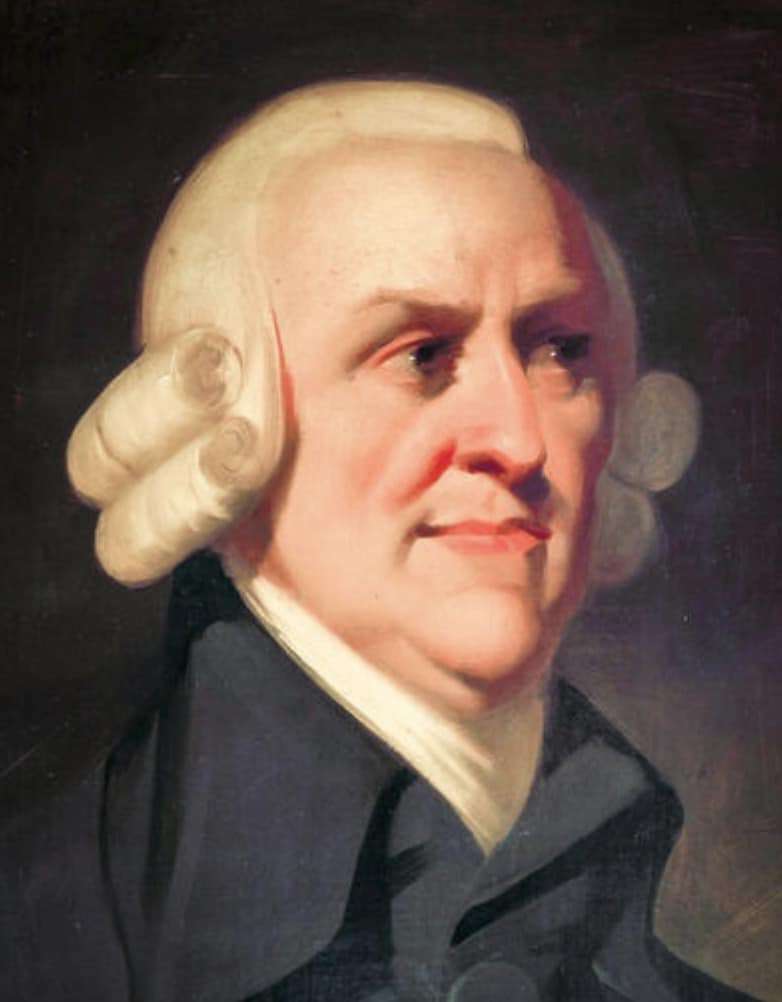
Adam Smith was baptized on June 16, 1723 in Kirkcaldy, in Fife, Scotland and is presumed to have been born a week or so earlier. He attended the Burgh Secondary School of Kirkcaldy from 1729 to 1737, where he learned Latin, mathematics, history, and writing. At age 14, he entered the University of Glasgow where he studied moral philosophy and on graduation, in 1740, won a scholarship for postgraduate studies at Balliol College, Oxford.
By 1748 Adam Smith was delivering public lectures at the University of Edinburgh in which he expounded his economic philosophy of “the obvious and simple system of natural liberty.” Two years later, he met the esteemed philosopher David Hume with whom he collaborated in the decades that followed. In 1751, Smith earned a professorship at Glasgow University where he taught courses in logic, but soon became the head of the Moral Philosophy department–a position that ultimately led in 1759 to his publication of The Theory of Moral Sentiments. In this treatise, he argued that “moral responsibility” in a society was manifest in feelings of shared empathy.
Smith resigned from his professorship in 1764 to take a lucrative tutoring position that enabled him to travel throughout Europe, tutoring and testing his ideas. Challenging the accepted belief that a nation’s wealth is defined by its reserves of gold and silver, Smith argued that national wealth resides in the quantity of labor available to a nation. His view was further refined through discussions in Paris, with Benjamin Franklin, who introduced him to the Physiocracy school of wealth distribution. The Physiocratic school asserts that a nation’s wealth does not increase by interventions aimed at maximizing exports and minimizing imports (merchantilism), but rather by allowing markets to operate freely. This economic policy was captured in the motto: Laissez faire et laissez passer, le monde va de lui même! (Let do and let pass, the world goes on by itself!).
In 1766, Smith returned to Kirkcaldy, where he immersed himself in the writing of his epoch-making opus An Inquiry into the Nature and Causes of the Wealth of Nations, published in 1776. Its cogent reasoning argued that competition acted as the “invisible hand” in regulating the marketplace. The first edition was sold out in 6 months.
Expressing the essence of the laissez-faire approach to wealth accumulation he stated: It is the maxim of every prudent master of a family, never to attempt to make at home what it will cost him more to make than to buy…What is prudence in the conduct of every private family, can scarce be folly in that of a great kingdom. Adam Smith died in Edinburgh on July 17, 1790 after a painful illness.
